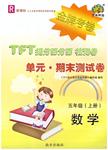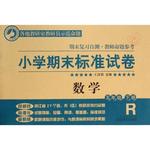完形填空(共20小题;每小题1分,满分20分)
阅读下面短文,从短文后所给的四个选项A、B、C、D中,选出可以填人空白处的最佳答案,并在答题卡上将该项涂黑。
Once a group of tourists who were staying at a hotel in Birmingham were having dinner in the restaurant. Fish was brought in and while they were 16 it, some of them told interesting stories about 17 pearls and other 18 things inside fish.
An old gentleman, who up to now had 19 quietly to their conversation, at last said,
“ I’ve heard all your stories, now I’ll tell you 20 . When I was a young man I was working in a large importing factory in New York, and 21 is usual with young persons, I fell in 22 with a pretty young girl. Very __23__ we were engaged(订婚). About two months __24___ our marriage was to take place, I was suddenly 25 to Birmingham on a very important business. I left my sweetheart, 26 to write to her. ”
“ I had to stay in Birmingham longer than I had 27 . At last my work was done and I could leave Birmingham. But just before I 28 New York, I bought a beautiful and very expensive diamond 29 , planning to give it to my sweetheart. ”
“ On my way to New York, I was__30___ the morning newspaper, which had been brought on board by the sailor. Suddenly I 31 an announcement of my sweetheart’s 32 with another. This made me so angry that I threw the ring overboard. A few days 33 , when I was eating fish, I bit(咬) on something 34 . What do you think it was ? ”
“ The diamond ring, ” cried his companions. “ No ” , said the old gentleman 35 , “ it was a fish-bone.”
16. A. eating B. cooking C. peeling D. weighing



17. A. exchanging B. tasting C. finding D. searching
18. A. valuable B. terrible C. common D. cheap
19. A. sat B. listened C. stood D. thought
20. A. one B. all C. some D. another



21. A. it B. which C. that D. as
22. A. trouble B. debt C. quarrel D. love
23. A. quickly B. fast C. soon D. lucky
24. A. when B. before C. after D. since
25. A. reported B. sent C. caught D. taken
26. A. promising B. agreeing C. refusing D. wishing
27. A. regretted B. wondered C. expected D. finished



28. A. left for B. left to C. returned back D. returned from
29. A. watch B. ring C. earring D. necklace
30. A. looking at B. looking up C. looking through D. looking for
31. A. looked B. saw C. heard D. recognized
32. A. marriage B. fight C. talk D. agreement
33. A. before B. later C. earlier D. ago
34. A. hard B. sweet C. soft D. crisp
35. A. happily B. loudly C. angrily D. sadly







 提分百分百检测卷单元期末测试卷系列答案
提分百分百检测卷单元期末测试卷系列答案 小学期末标准试卷系列答案
小学期末标准试卷系列答案













